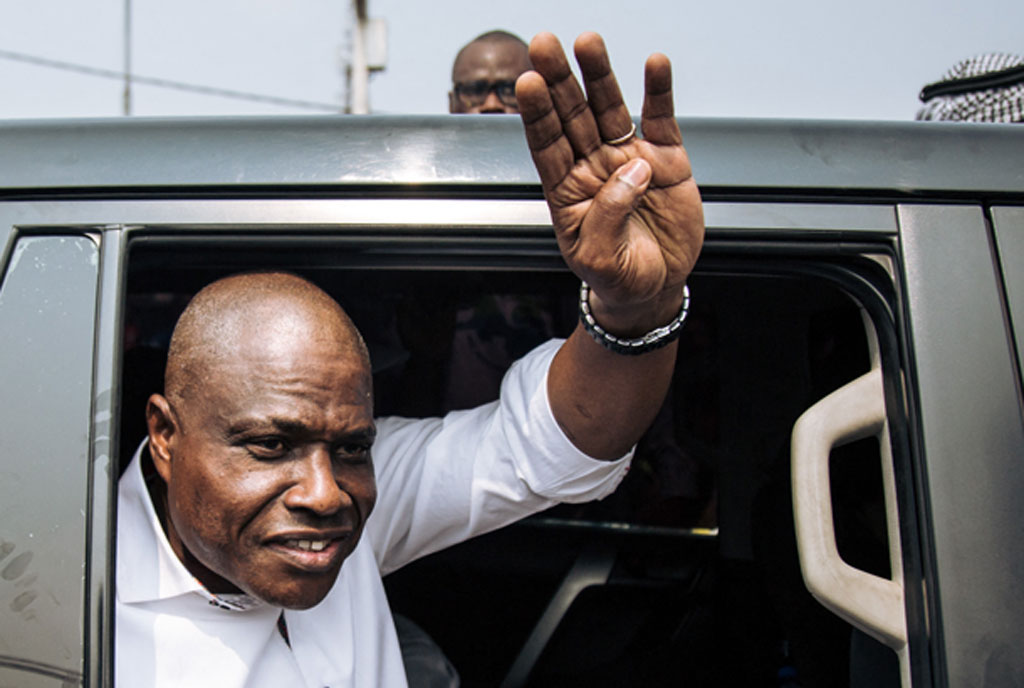DR Congo opposition coalition fields Fayulu as presidential candidate

Former candidate of the Lamuka opposition coalition, Martin Fayulu, greets the crowd of supporters while his convoy is stopped by the police during a protest march organized on June 30, 2019, the Independence Day, in Kinshasa. PHOTO/FILE/AFP
What you need to know:
- Fayulu consistently maintains the 2018 presidential vote, in which he came a close second, was rigged.
Martin Fayulu, a key figure in the main Lamuka opposition coalition in the Democratic Republic of Congo, confirmed Saturday that he would stand in the country's upcoming presidential election.
He will be one of the main challengers to President Felix Tshisekedi, who beat Fayulu in the December 2018 ballot and is seeking a second term.
Sub-Saharan Africa's biggest country votes on December 20 for the presidency, national legislature, provincial assemblies and local councils.
"The Lamuka coalition has registered me as its candidate for the presidential election," Fayulu told journalists in the capital, Kinshasa.
"We will continue to fight to ensure the election is transparent," he said.
Fayulu consistently maintains the 2018 presidential vote, in which he came a close second, was rigged.
"We didn't manage to get the electoral roll re-audited. But we will ensure transparency by monitoring (the vote)," he said.
Fayulu's Engagement for Citizenship and Development party, a member of Lamuka, says the electoral roll is inaccurate and has refused to put up candidates for the parliamentary, regional and local elections.
The party alleges that of the 43.9 million voters on the electoral roll, some 10 million are "fictitious".
"This time, we're not letting it happen. We are not going to condone fraud," said Fayulu, a 66-year-old former senior executive with oil giant ExxonMobil.
"We have to prevent the electoral farce that's being cooked up."
Fayulu said that even though the opposition failed to have the electoral roll re-audited, its "pressure" had produced some progress.
That included the head of the electoral commission agreeing to publish the results of the election "polling station by polling station".





